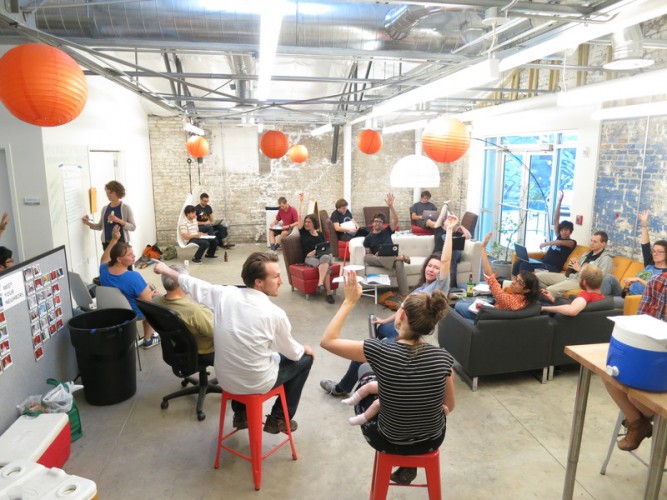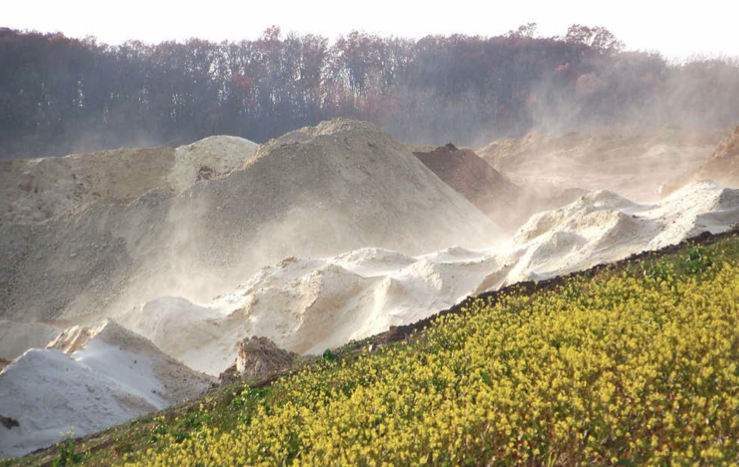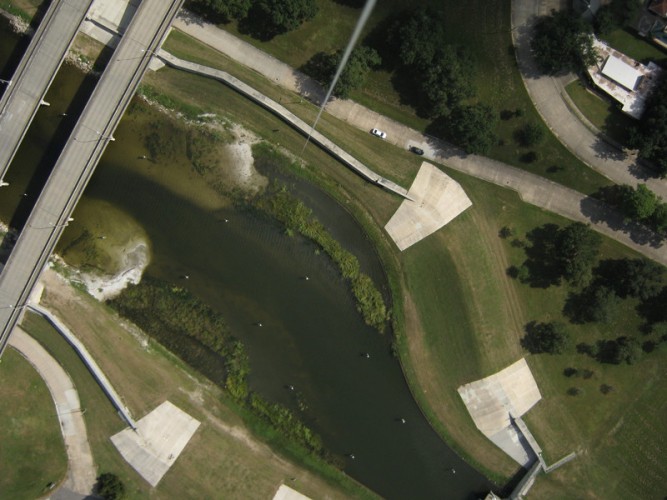Public Lab and UC Davis partner explore community science and civic engagement
The Center for Community and Citizen Science and Public Lab have received funding from the Gordon and Betty Moore Foundation to explore a shared interest in discovering what effect participating in community science has on civic engagement. The research team – Shannon Dosemagen, Liz Barry, Gretchen Gehrke from Public Lab, and Dr. Heidi Ballard, Meg Pannkuk, Erin Bird from CCS – has broadly focused on answering the following: under what conditions, and through what mechanisms, can engagement in science lead individuals and community groups to become involved in larger social or environmental issues and civic actions? In order to research this subject, the team developed three research questions:
- In what ways do participants engage with the Public Lab co-created toolkits on frac sand mining or wetland monitoring?
- What evidence is there of science learning for civic engagement (framed here as environmental science agency) by participants?
- In what ways does Public Lab foster science learning for civic engagement in the cases of frac sand and wetland monitoring issues?
In this project we are focusing on two Public Lab toolkits:
Frac Sand- This toolkit introduces individuals to frac sand issues and particle pollution, specifically, industrial sand mining. Its goal is to connect concerned community members, hardware developers, and scientists while providing resources for monitoring particulate matter, reporting pollution, and engaging in advocacy.
Wetlands- The wetlands toolkit was designed for anyone who lives near a wetland or is concerned about wetland health. The purpose of this toolkit is to provide information on what wetlands do, how wetland health is measured, and how we can help restore wetlands. Additionally, this toolkit gives individuals hands-on experience with research, map-making, advocacy techniques, etc.
Our project is looking to understand how individuals interact with the toolkits, and with each other. We want to understand how individuals are using the Public Lab community to engage in science and civic engagement; the contents of the toolkits are only one small piece of the larger picture. To better understand the interactions surrounding these toolkits we interviewed a total of 37 individuals who have a wide range of experiences interacting with the toolkits and with the Public Lab community. We asked them about what they did in the context of environmental monitoring projects, how they interacted with Public Lab, how they understood science, and if and how they engaged in civic activities, among many other questions.
Along with looking at how and why participants are engaging with Public Lab, community science, and civic activities, this project also hopes to answer the question: What successful aspects of the Public Lab model are replicable and scalable, and what audiences are most appropriate to reach with this model? For this last piece, Dr Heidi Ballard and Erin Bird, PhD candidate in Science and Agricultural Education at UC Davis, are working to draw lessons from this study together with literature pertaining to K-12 community and citizen science to create recommendations for furthering Public Lab’s reach.
About Public Lab
The Public Laboratory for Open Technology and Science (Public Lab) is a community — supported by a 501(c)3 non-profit — which develops and applies open-source tools to environmental exploration and investigation. By democratizing inexpensive and accessible Do-It-Yourself techniques, Public Lab creates a collaborative network of practitioners who actively re-imagine the human relationship with the environment. Visit PublicLab.org and follow @PublicLab.
About the Center for Community and Citizen Science
The Center for Community and Citizen Science, based at the UC Davis School of Education, is a home to programs and partnerships that revolutionize how—and with whom—science gets done. Based on a foundation of research excellence, the Center helps scientists, communities, and citizens collaborate on science to address environmental problems as a part of civic life. Visit education.ucdavis.edu/ccs and follow @UCDavisCCS.











